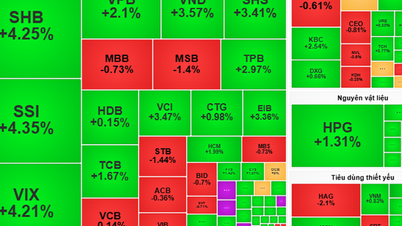Halil Duman, 68, who has spent more than three decades at Berlin’s Döner stands, gazes thoughtfully at his rotating skewers of ground beef. At his small Pergamon Döner on Friedrichstrasse station, the line of people waiting for lunch is still there, but the owner’s smile has faded.
“Things are getting harder,” said the Turkish native. “Raw materials are getting more expensive and we are barely making any profit.”
The classic Döner sandwich that Mr. Duman sells costs 7.50 euros. He knows that if he raises the price any further, “people will stop buying.” Mr. Duman’s story is not an isolated one. It is a true snapshot of a “storm” that has been brewing quietly in the kitchens of Döner shops and threatens to spread, exposing cracks in the German economic machine.
When the "silent giant" sneezes
The epicentre of this story lies in the town of Murr, some 30km north of Stuttgart. This is where Birtat Meat World SE, a “quiet giant” in the Döner industry, is based. With over 30 years of experience, Birtat is not just a factory, but a vital link in the German national food supply chain.
Birtat’s website proudly claims that it supplies meat to thousands of Döner stalls, serving more than 13 million consumers each month. The giant skewers of beef, veal and turkey, which can weigh up to 120kg, are marinated, skewered, flash-frozen and shipped across the country from here.
But the giant machine is in danger of coming to a halt. For weeks, hundreds of workers at Birtat, the heart of the factory, have been staging strikes. Their demands are clear: a 375 euro monthly wage increase and a transparent collective bargaining agreement.
The Food, Beverage and Catering Workers Union (NGG), which represents the workers, points out a shocking fact: current wages in Birtat are opaque and vary widely, even among people doing the same job. Most of these workers are immigrants from Türkiye, Romania, or Bulgaria. They work long hours in harsh conditions, with temperatures often hovering near freezing to preserve meat.
The Birtat labor dispute is no longer a local affair. It is a time bomb in the middle of the Döner supply chain. If workers decide to go on a long strike, it will have a domino effect: thousands of shops like Mr. Duman’s will face meat shortages. The price of a Döner will not stop at 7 or 8 euros.

In Germany, Döner Kebab is not only a street food but also a cultural symbol, closely associated with the daily lives of millions of people (Photo: AP).
Döner Kebab - "inflation index" on every street
For many Germans, Döner Kebab is more than just food, it's an unofficial economic indicator, a more familiar and understandable measure of inflation than any central bank number.
Two decades ago, a Döner cost around 2.50 euros, a true “hunger relief” for students and low-income workers. Today, the typical price is at least 7 euros. This meteoric rise accurately reflects the cost pressures that are weighing on every corner of the German economy, from energy prices to transport costs to raw material prices.
Nele Langfeld, a 22-year-old student, was lining up to buy Döner. She had not heard about the strike at the Birtat factory, but the prospect of her favorite food becoming more expensive was making her nervous. “I’m on a tight budget, and this is the last thing I want to see,” she said. “Döner is a rare cheap food that can fill you up, and it should stay that way.”
Nele’s wish is shared by millions of German consumers. But as Mr Duman’s story and the Birtat strike show, keeping Döner prices “affordable” is becoming an increasingly impossible task. Pressure from input costs and now the threat of a shortage of workers are pushing shopkeepers into a corner.
From symbol of integration to difficult economic problem
Few people know that the dish considered the "national soul" of German street food originated from Turkish immigrants. According to legend, Mahmut Aygun invented the first Döner sandwich in 1971 in West Berlin. From a dish of the "guest workers" (Gastarbeiter) community, Döner conquered the taste buds of the whole of Germany and became a symbol of successful cultural integration.
There are around 2.9 million people of Turkish origin living in Germany, and the Döner industry is an economic powerhouse that creates tens of thousands of jobs and generates billions of euros in revenue each year.
The Birtat strike is a stark reminder of the role migrant workers play in the German economy. They are behind the products that millions of people consume every day, yet their voices and rights are often overlooked. The strikes, with their flags and drums, are not just about wages but also an attempt to recognise their contribution to society.
While Birtat’s management remains silent, the battle between workers and the company continues, leaving one big question unanswered: what will happen to the Döner Kebab? Will it become a luxury that only the wealthy can afford? Or will the strike act as a catalyst, forcing manufacturers and governments to take a serious look at the rights of workers, especially migrant workers, to ensure the sustainability of an entire industry?
The story of the Döner Kebab is not just a German issue, but also a prime example of the economic and social challenges facing many countries: inflation, rising living costs, and disparities in workers' rights. It shows that a seemingly simple dish can tell a complex story about an economy and a society.
Source: https://dantri.com.vn/kinh-doanh/doner-kebab-buc-tranh-kinh-te-cua-nuoc-duc-qua-mot-xien-thit-20250808170549601.htm



![[Photo] General Secretary To Lam attends the opening ceremony of the National Achievements Exhibition](https://vphoto.vietnam.vn/thumb/1200x675/vietnam/resource/IMAGE/2025/8/28/d371751d37634474bb3d91c6f701be7f)
![[Photo] General Secretary To Lam presents the 45-year Party membership badge to comrade Phan Dinh Trac](https://vphoto.vietnam.vn/thumb/1200x675/vietnam/resource/IMAGE/2025/8/28/e2f08c400e504e38ac694bc6142ac331)
![[Photo] Prime Minister Pham Minh Chinh meets with Speaker of the New Zealand Parliament Gerry Brownlee](https://vphoto.vietnam.vn/thumb/1200x675/vietnam/resource/IMAGE/2025/8/28/cec2630220ec49efbb04030e664995db)
![[Photo] Politburo works with the Standing Committee of Cao Bang Provincial Party Committee and Hue City Party Committee](https://vphoto.vietnam.vn/thumb/1200x675/vietnam/resource/IMAGE/2025/8/28/fee8a847b1ff45188749eb0299c512b2)

![[Photo] Red flag with yellow star flutters in France on National Day September 2](https://vphoto.vietnam.vn/thumb/1200x675/vietnam/resource/IMAGE/2025/8/28/f6fc12215220488bb859230b86b9cc12)

























































































Comment (0)